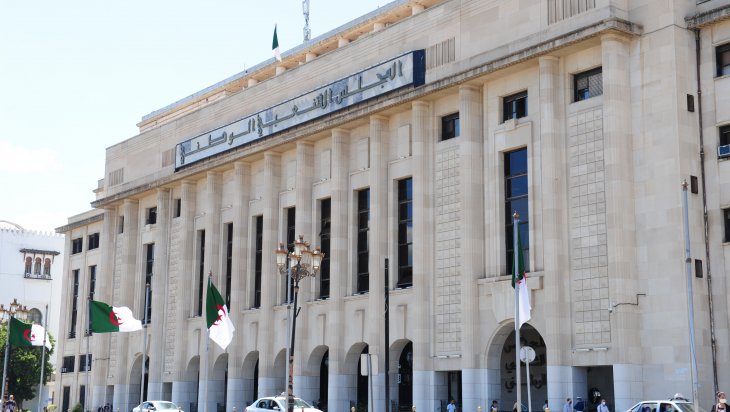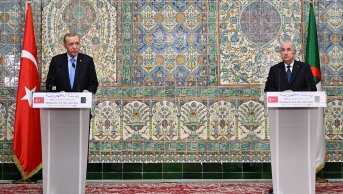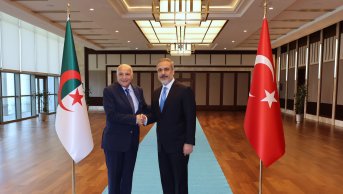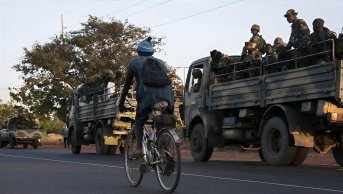Algeria’s New Constitution Between the Spirit of the Law and the Practice of Power

The new Algerian draft constitution is based on providing the people with many freedoms. Hence President Abdelmadjid Tebboune's administration knows well what it is like to not have a fundamental law in the land that goes with popular aspirations and the new Algeria. He tries to turn the “old” world of the Algerian regime into what Algerians have just left behind considering their nine months of a peaceful mosaic Hirak in 2019.
Algeria will be holding a referendum on a revised constitution on November 1. The new constitution is expected to boost the democratic process in the country, giving the Algerian parliament a significant role. After months of consultations with the political parties, the president decided to set the symbolic date of November 1, 2020 for holding the referendum on the draft revision of the constitution. This date marks the 66th anniversary of the start of Algeria’s Liberation War (1954-1962) against the French colonization.
Constitution Spirit
President Abdelmadjid Tebboune has repeatedly pledged to introduce political and economic reforms since his election in December 2019. Since he took office, as a genuine answer to the peaceful Hirak, he has sought constitutional reforms that were mentioned in the preamble of the new constitution and in the November 1954 communiqué.
On the thorny question of Amazighity, the radical Berberist, and the obstructionist political parties, the so-called “democratic alternative” have shown a vehement opposition to the draft constitution. The president made it clear in his press conference that there will be no debate on the identity question: "Amazighity does not concern a single region, but all of the country. He said the same position goes for Article 2: “Islam will remain the religion of the state.”
President Abdelmadjid Tebboune has promised to reduce the president’s powers and guaranteed the separation and balance of powers. The new constitution would give the prime minister and parliament more powers, the draft keeps presidential terms limited to two terms. Moreover, he took this opportunity to announce that the National Electoral Commission will be in charge of preparing the draft revision of the organic law on the electoral system.
Chronologically, first Algerian constitution was adopted by a referendum in 1963, following the Algerian Liberation War of Independence (1954–62). Originally, it was to be drafted by a constitutional assembly led by a civilian politician, Mr. Farhat Abbas. However, this body was sidelined by Algeria's first president, President Ahmed Ben Bella, who established himself as a resistant leader and the FLN movement that became a unique political party in the land in 1964.
Constitutions between Ideology and Enmity
This constitution was suspended on June 19, 1965 against President Ahmed Ben Bella. After decade, ruling by executive orders as leader of the Revolutionary Council, Colonel Houari Boumediènne issued a second constitution in 1976, emphasizing the importance of socialism and (formally) restoring political institutions to their primacy over the military establishment. Colonel Boumediènne was then elected the country's second president, after having left the post for eleven years.
In 1986, Colonel Boumediènne's successor, Colonel Chadli Bendjedid, amended the constitution to allow free market reforms to thrive and a sea breeze to blow in the FLN party house. In the aftermath of the October 5, 1988 riots a new constitution was brought in winter 1988. The October 5, 1988 Revolt, the emanation of the Arabs’ uprisings, these violent popular riots and internal divisions within the regime, resulted in eliminating a part of the regimes clan and encouraged the reformist elite to emerge and eventually to lead.
This was approved in a referendum by 73% on February 23, 1989. It introduced a multi-party system, removing the FLN party from its role leading the one-party system, and made no mention of socialism. Instead, it promised "freedom of expression, association and assembly."
Preliminary, this draft constitution’s main point is Article 30: Algeria might, within the framework of the United Nations, the African Union and the Arab League states, participate in peacekeeping operations. In addition, the president can decide to send troops abroad after a two-thirds majority vote in the two chambers of the Algerian parliament. With Article: 91-2, the constitutional amendment of this article is read by many analysts to be that Algeria is correcting its bad judgement regarding national security following the Libyan crisis in 2011.
They would allow the military troops to be more proactive if another conflict erupts in neighboring countries: Mali, Niger, Tunisia and even in Mauritania, all considered to be fragile states.
Although, Algerians are skeptical about the technicality of the new draft constitution’s articles and spirits, they are also concerned about the political context because Algerians have gone through drafted constitutions. In this instance, previously, Algeria’s constitution has been amended several times since independence in 1962. During the two-decade ruling era of Ex-President Abdelaziz Bouteflika it had been tailored for the deposed leader's requirements, and practice of power.
There is, however, an important note on the drafted new draft constitution, Algerians do not all have to be all experts on constitutional law. Yet, considering the ray of hope of the Hirak in 2019, Algerians are looking forward to deep political change that could benefit from the young generation, whose desire for freedom and good governance are more exigent than the elder generations. The new draft constitution also let the president keep his post as Minister of Defense. According to Article 91-1, he is the Commander-in-Chief of the Republic, and he is in charge of national defense.
This phrase emphasizes the powerful post in the institutions of the republic: the National Defense Minister.
What made the president not “democratize” this sensitive portfolio in the Republic?
The Military and the Constitutions
Historically, Algeria’s presidents, who appointed a defense minister or vice-defense minister, were overthrown by the latter. In June of 1965, Colonel Boumediènne, Minister of National Defense, ousted President Ahmed Ben Bella. In January 1992, General Khaled Nezzar, Defense Minister, ousted President Chadli Bendjedid. In April 2019, the military Chief of Staff, Vice-National Defense Minister, General Ahmed Gaïd Salah, ousted President Abdelaziz Bouteflika.
Accordingly, Algeria’s February 1989 constitution is still the symbol of Algeria’s second republic and the political dream for the post-1965 coup generation. This generation believed in the spirit of its text, a pluralistic constitution which ended the single party ruling of the FLN party and its nomenklatura.
Yet, the powerful military clan saw this change as potentially a new challenge and a direct threat to the regimes interests and the large privileges of the deep states actors and servants. In a political context fueled by the exacerbation of divisions at the high levels of the regime, looking at the appearance and evolution of the Islamic Salvation Front party (FIS), the FIS was more than a conventional political party with a vocal critic tone towards the regime.
Consequently, in January 1992 the military coup introduced a state of emergency, which suspended parts of the new constitution, aborted the democratic process that President Bendjeddid and his reformist team launched, as the Algerian Civil War broke out in 1992-1999.
In sum, Algerians will vote en masse to approve the new constitution, enhancing the president’s political capital to go forward with his reforms for a new Algeria, ending Ex-President Abdelaziz Bouteflika’s oligarchic system. Nevertheless, Algerian voters are not going to care about the separation of powers (legislative, executive, and judicial), as they would care more about reconciliation of their freedom and the public authority through trust and credibility because, at the end of the day, there is no greater tyranny than that which is perpetrated under the shield of the law and in the name of justice.










